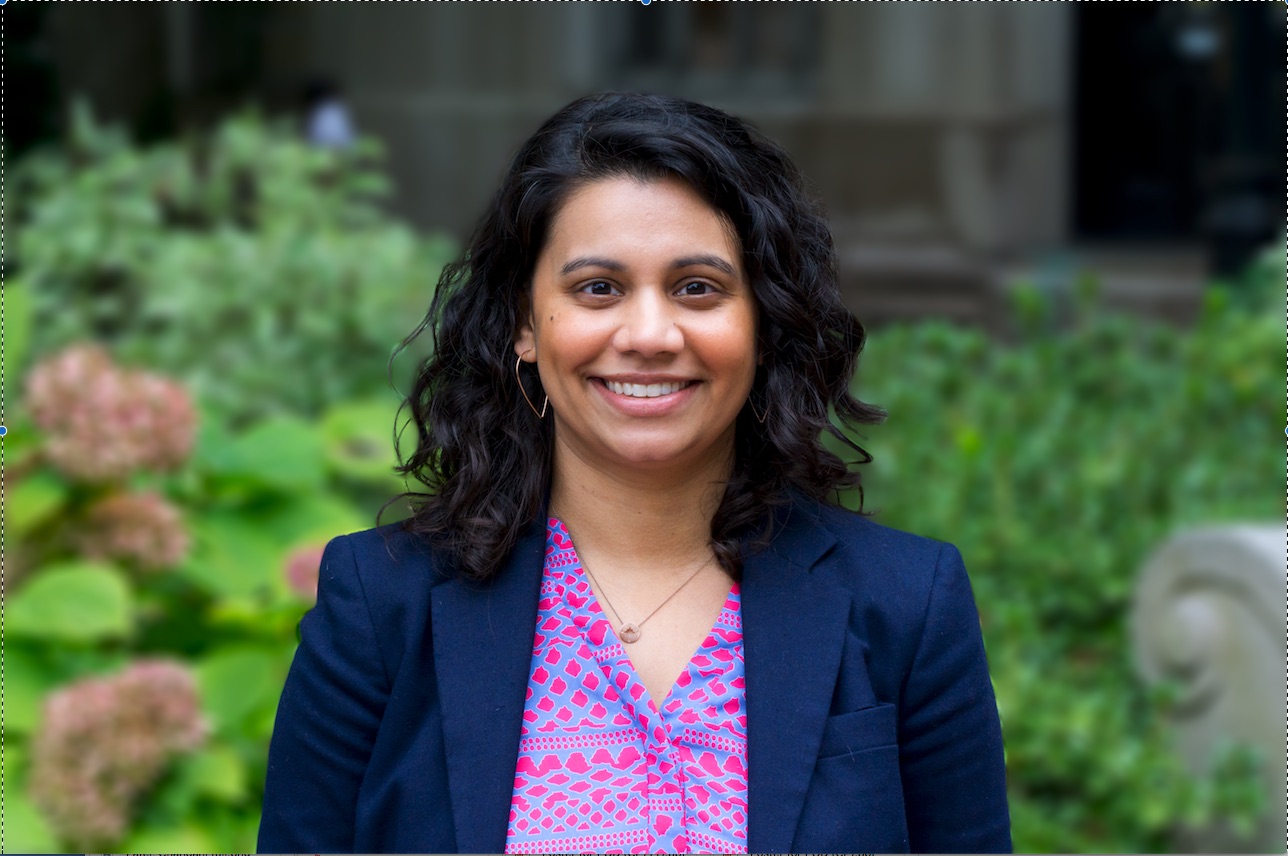by Chandani Patel – Follow @chandani35
I’m a (relatively) new mom. My baby turned a year old in October. As her birthday came and went, I thought about the challenges that I’ve faced this past year adapting to this new role. The sleepless nights, breastfeeding and anxiety around leaving her in the care of strangers were tough, but they are hurdles that many new moms share. But I find that I’m still struggling with one key aspect of my life: self-love.
This journey into the thicket of motherhood has thrown me in a loop that even now surprises me. My husband and I knew that parenthood would change our lives forever. We had prepared for me to be crabby during pregnancy (which luckily I wasn’t for the most part), for labor and delivery to be unpredictable (which it was, in addition to long and exhausting), for sleepless nights, and for our life together to be fundamentally different (in both the sweetest and toughest ways). As thirty-somethings, though, with friends who have gone before us down this path, we felt prepared and ready for the baby that we had been anticipating with an abundance of love.
[Read Related: Capturing Childhood: How to Take Great Photos of Children]
What we didn’t anticipate, and what I’m still struggling with, is the overwhelming anxiety that comes with being a mom. Not necessarily anxiety about mothering (though I did have some of that too), but anxiety centered on the lack of time for myself, and then the guilt of daring to think about myself at all. I’m not sure I was very good at self-love before I had a baby, but I know for sure that I haven’t been any good at it since.
Does this have to do with being a woman of color or with my personal upbringing? As I often say, self-love is hard, and harder still for those of us who have to work twice as hard to get half as far. It’s something to continuously work on, to strive for and attempt to harness. And for me, it’s been difficult because I’m a woman of color who navigates predominantly white environments professionally and personally and because I am the daughter of immigrants whose ideas about the self often stand in stark opposition with my own.
In dwelling on what’s wrong with me in order to fix it, I find it hard to remember what’s good about myself. What value do I add to the lives of those around me. My baby’s face lighting up when she sees me certainly helps, as do my husband’s affirmations about how good of a job I’m doing and how much he values me. But as I delve deeper into this issue, I’ve come to realize that self-love is not something that was modeled for me.
Who am I besides a mother, wife, and daughter? What do I need to thrive (and not just survive)? I realize I am asking questions of myself that I was never taught to ask when I was growing up. My mother is an amazing wife, mother, and friend to anyone she meets. Her whole heart is open to everyone, even though the outside world is often terrifying to her. But I’m not sure she’s ever thought about herself as a self. In fact, growing up in an Indian immigrant family completely annihilates any claims to one’s own self.
[Read More: Mom on a Mission: Reframing the ‘Mom Guilt’ Conversation]
I am extremely fortunate, and my daughter even more so, to have the help that I do in my husband (who cared for our daughter for much of her first year) and in my parents (who give unconditionally, and always have, so that we can have better lives and who are now helping to care for their granddaughter). But loving myself is still hard.
When I take some time to work on projects, or read a book, or decompress, I feel guilty that I’ve handed my daughter off so that I can have my own time and space to reflect and process. I feel guilty when I think about my 3+ hour daily commute to my new job and about how I miss bedtime some if not all nights during the week. I feel guilty that my daughter doesn’t have my arms to rock her as she settles down for the night, that she doesn’t see my face but faces of strangers at daycare, and that she will come to think of her grandmother as her mother instead of me. I know, though, that I am a better mother to her if I am pursuing my own dreams too, and that I am a better parent to her if I can make her life, and our collective lives, a bit easier. I even know that for the most part, she will have no recollection of the earliest years of her life. Loving myself is still hard.
Loving myself has been hardest, in some ways, as I look at my postpartum body in the mirror. To others, I probably don’t look that different. But I know that the baby weight is still (mostly) there. I can see the stretch marks and the incision from the C-section. I can feel the way my body sits and moves differently. It has been a daily battle for me to accept this new body. I am now working out almost every day, tracking what I eat, trying to get back to my pre-pregnancy weight and body, and putting an enormous amount of pressure on myself to do so. And while I know it would be easier to just embrace this new body as mine, it still feels unfamiliar and unwanted. I cannot bring myself to love it. Just as I could not bring myself to love my body for most of my life.
A body that was always petite, but a body that I was warned would grow to become slightly overweight like my mother’s. I heard this from her, from my dad, from my relatives (though I didn’t ask them, and never do), as they compared my body to my sisters’, both of whom are not quite as curvy. And I’ve realized, now that I live with my mother, that this inability to love my body, as well as myself, stems partially from her own inability to do the same. She has always thought out loud that she is not smart or thin or valuable enough. That her English is not good enough. And while she has grown more confident in herself, replying with “I know” when we tell her she is the best, or that she looks fly, she still openly worries about her body and her worth. As all women do from time to time, if not always, and as I certainly do more so now than before I was a mother.
[Read More: 7 Simple Ways to Raise a Confident Child ]
Self-love to me, amounts to a combination of self-care and self-affirmation. Being intentional about the things we tell ourselves about our value, our worth and our humanity. For most of my adult life, I rejected others’ forms of self-affirmation as “corny” or “not for me”. I thought I didn’t need to write myself notes that I am doing a good job and didn’t need other people to tell me the same. To me this kind of affirmation meant there was something lacking in myself or that I was weak. It’s easier, in many ways, to love other people than it is to love one’s self. To accept one’s self for its flaws as well as its strength and beauty is the strongest form of love, and I am working hard to be this better version of myself for my daughter.
I want her to know what self-love looks like so that she can cultivate it and provide herself self affirmation when she needs it. So that she can recognize her value and worth without needing someone else to do it for her. She might not have sisters like I did to help her, so I want her to know that loving herself is not a form of narcissism or self indulgence. That as a woman of color, it’s a necessary act of resistance, to all structures that ask women to take up less space and conform to outsiders’ standards. Instead, I want to emulate the kind of self-love that can nurture and replenish, but also, and more importantly, that can shatter the expectations we have of women to be selfless and submissive to the existing order of things. Loving myself, I hope, will help my daughter love herself enough to demand more of the world she grows up to know.
 Chandani Patel is a teacher and writer located in the NJ/NYC area. Her work examines the landscape of higher education, parenting, and South Asian immigrant experiences. She has a Ph.D. in Comparative Literature from the University of Chicago.
Chandani Patel is a teacher and writer located in the NJ/NYC area. Her work examines the landscape of higher education, parenting, and South Asian immigrant experiences. She has a Ph.D. in Comparative Literature from the University of Chicago.





